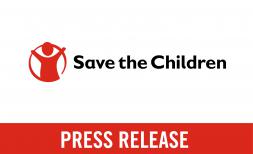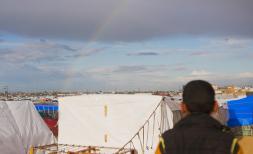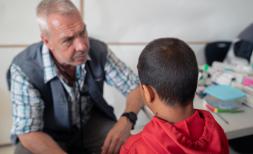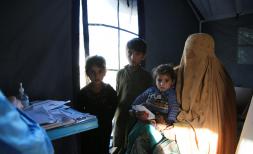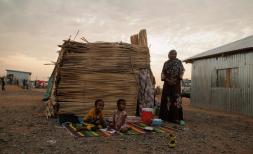Lebanon crisis: children as young as five face violence, dog attacks as forced onto streets to work
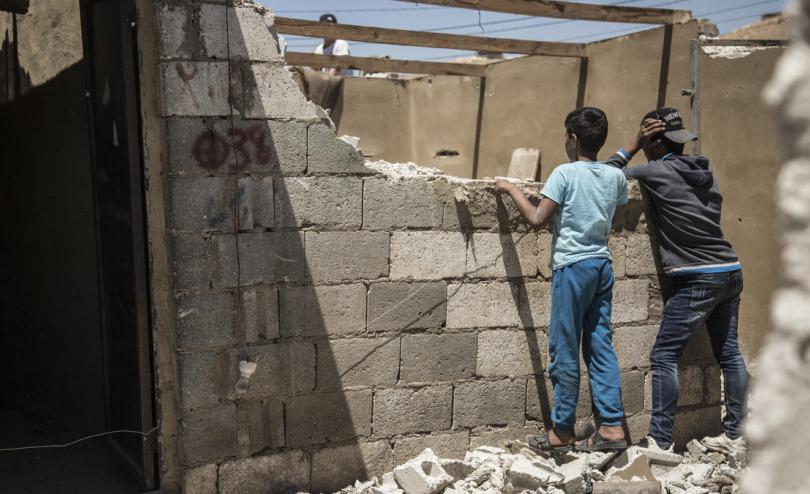
Children as young as five are being forced onto the streets to sell black market petrol and collect scrap metal and plastic, as COVID-19 exacerbates the economic crisis in Lebanon, Save the Children said today. Prices have spiraled and the value of the Lebanese pound plummeted.
Save the Children’s staff reported a dramatic increase in the number of children working on the street this year, coming across 306 cases of child labour in the first half of this year compared to 346 cases over the whole of 2020.
Children told the organisation that they face being beaten and verbal abuse while trying to earn money on the streets for their families.
Hashem*, a Syrian father of two living in a refugee camp in Bekaa Valley, told Save the Children his five-year-old daughter was attacked by a pack of dogs after she started to work on the street as food became unaffordable.
“She goes out to play with her friends and then she is off to pick empty coke cans and scraps on the street. Sometimes we sell a bag of scrap for 10,000 pounds (0.60 USD) and sometimes not even 3,000 pounds (0.20 USD),” said Hashem.
“When a child works on the street, no one stops them, but when adults go out to work, they get stopped at checkpoints. She has been hit by other children who take her scraps away, and was attacked by dogs and had to run home and lost her bag.”
The country’s economic collapse and people’s decreasing purchasing power have pushed more families from all nationalities to send their children into dangerous and exhausting work, Save the Children said, such as selling tissues on motorways, collecting plastic bottles and working long hours on farms and in households
Save the Children and its partners support these families with cash and other services to prevent children from having to work, and to ensure children do not drop out of school. The organisation is now supporting Hashem* with cash, and is working to provide his daughter with an education.
A partial lifting of subsidies on fuel has sent the price of fuel up by 55% in 14 days, driving up prices for food and other goods. Power cuts for up to 21 hours a day have caused generator bills to double, with some owners charging 500,000 pounds (around $330 at the official bank rate) to run a generator for a month, or 78% of the minimum wage[i]. The local currency has lost over 90% of its value over the past 18 months.
The collapse in currency and economic deterioration have left over one million children, both Lebanese and refugees, in need of humanitarian support and food assistance. In areas like central Beirut, there has been a notable increase in the number of children begging on the street, many asking for help to buy baby milk or bread for their siblings.
Jennifer Moorehead, Save the Children’s Country Director in Lebanon, said:
“In virtually any village or city in Lebanon you’ll see children carrying heavy bags in a supermarket, being yelled at, or asking for small change to buy bread for their family. This has sadly become a normal scene on the streets and in the shops of Lebanon. It is imperative that we don’t accept this as a fact of life.”
“Children are being relied on like adults to help secure a living for their families. They are being exploited by employers who recruit children as they are cheaper – but also more vulnerable. This is a crisis that requires action from government, communities, civil society and NGOs. Children are being left on the street to scavenge, beg and be abused. With the situation in Lebanon getting worse by the day, we can only expect this crisis to deepen, exponentially exposing boys and girls to abuse and violence.”
Save the Children helps children involved in child labour and their families through integrated case management work which includes the provision of emergency cash assistance, psychosocial and mental health services for children and caregivers, work with employers, and referrals to services such as basic assistance, food parcels, and education.
The organisation is calling for urgent action to ensure the most vulnerable families of all nationalities in Lebanon have access to transparently distributed emergency financial support, and complementary support to child well-being.
*Name changed for privacy reasons
[1] According to a soon to be published analysis by Save the Children, the income of a Lebanese household is around 640,000 Lebanese pounds.
For more info and spokespeople you can reach out to:
- Rik Goverde, rik.goverde@savethechildren.org
- Out of hours (BST): media@savethechildren.org.uk / +44(0)7831 650409
